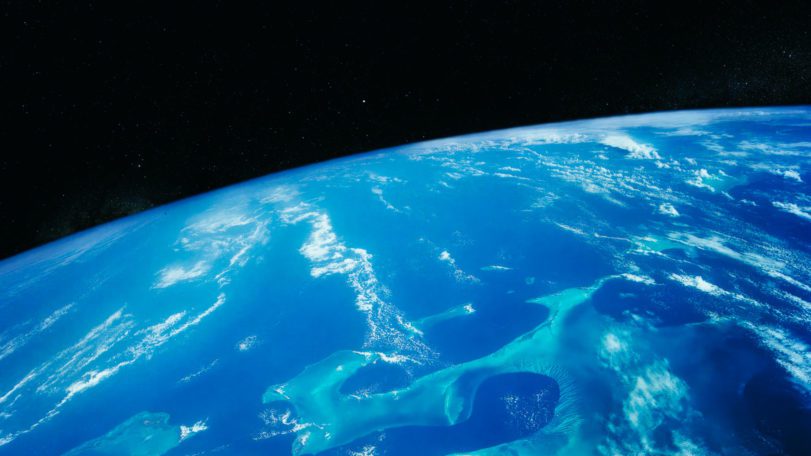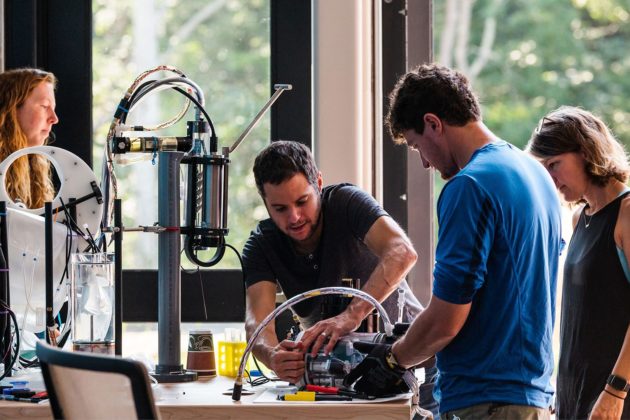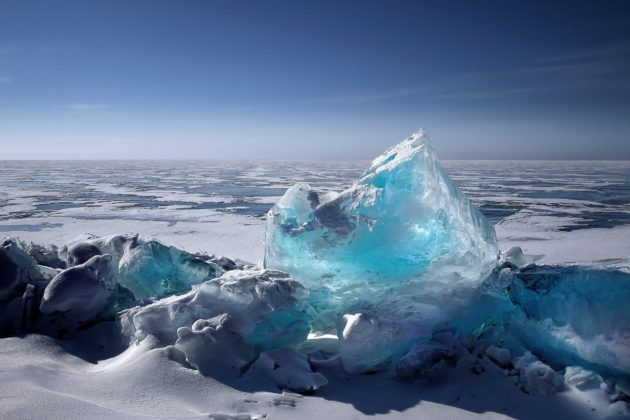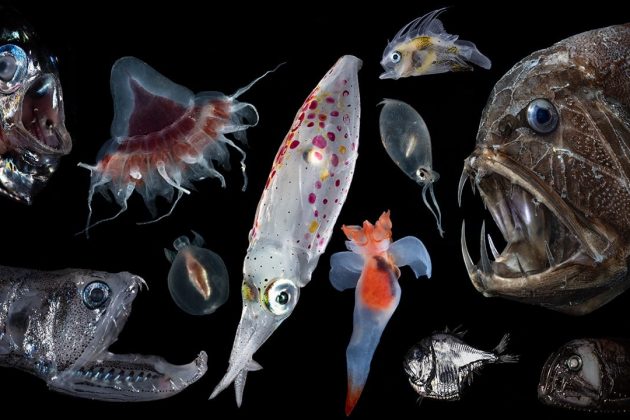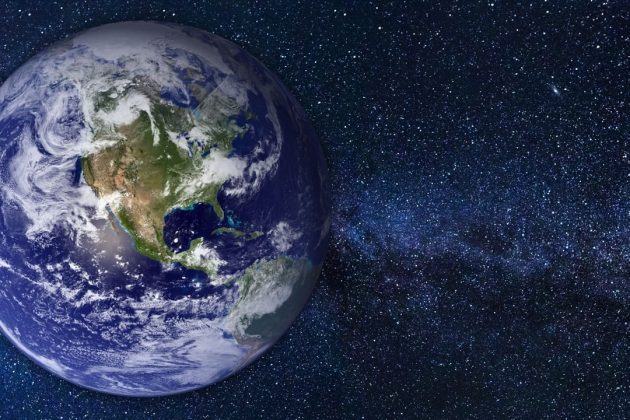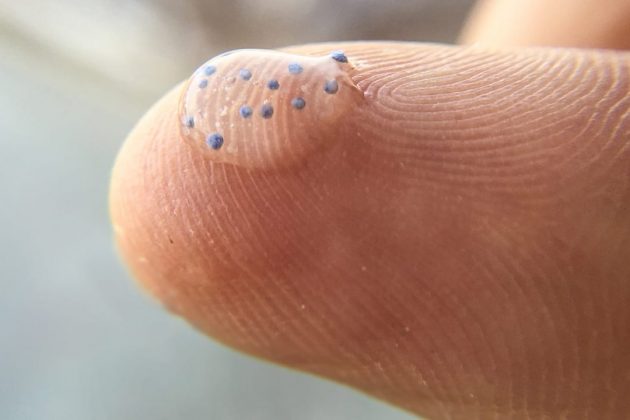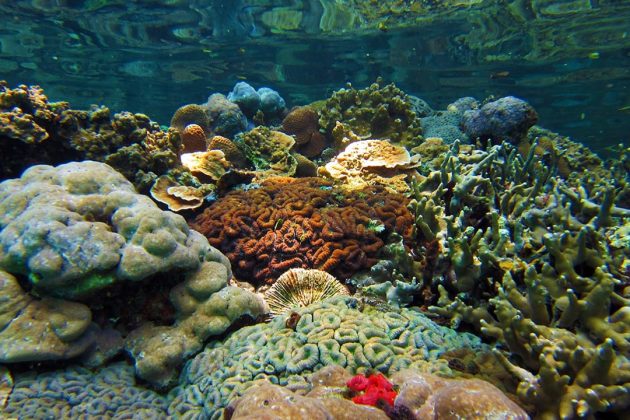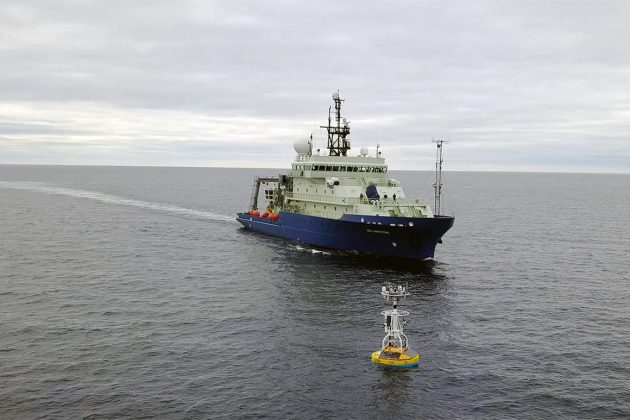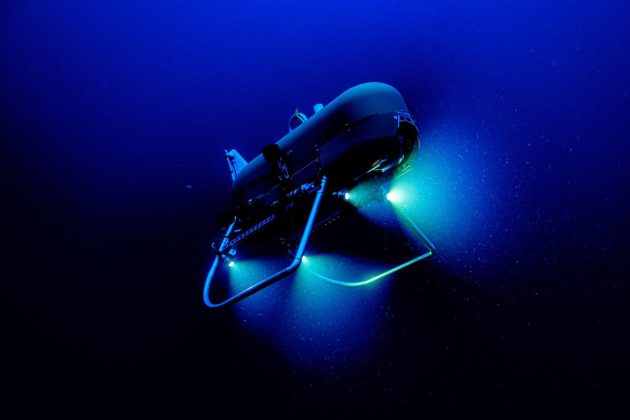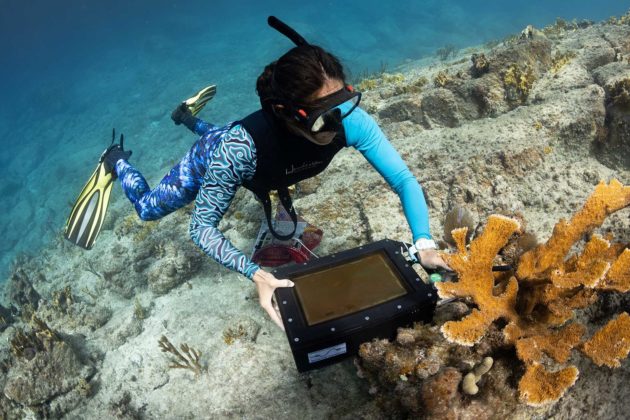Woods Hole Oceanographic Institution (WHOI) is the world's premier independent organization dedicated exclusively to ocean research, technology, and education. We combine state-of-the-art science, engineering, and ship operations to unravel the mysteries of the deep and devise science-based solutions to planet-wide problems.
👀 How many species can you spot in this #hydrothermalvent community?
🔎 Look closely and you’ll see a white hydrothermal vent #crab (Bythograeidea sp.) among the giant #tubeworms (Riftia pachyptila). Usually among the first colonizers of a new vent site, these blind crabs feed on chemosynthetic bacteria and sometimes small fish.
The yellowish #mussels you see here (Bathymodiolus thermophilus) can grow up to 8 inches (20 cm), often in great density. They host several types of bacteria, making it possible for them to live further away from active vents than other filter-feeders, like clams. So far, this deep-sea mussel has been found at vents sites on the East Pacific Rise and Galàpagos Rift.
These are just a few of the extremophiles that #Alvin has revealed to those of us on land. What else will scientists discover over the sub`s next 60 years?
Jun 12

What can researchers, entrepreneurs, and innovators do about climate change?
At the inaugural @climatechlive conference in #Boston last week, #WHOI glaciologist Sarah Das joined @northeastern professors Hanu Singh (also WHOI scientist emeritus) and Jennifer Dy for a conversation on how changes at the poles are impacting coastal communities– and how AI can help us prepare for sea level rise.
“What happens in the Arctic doesn’t stay in the Arctic,” Das told the audience.
📲 Read the story from Northeastern Global News at the link in bio!
📸 by Alyssa Stone/Northeastern University
Jun 11

😳 For all its high-tech allure, does the deep-sea submersible #Alvin have a place for its 3 crew to relieve themselves during 8+ hour dives?
📲 Swipe to find out– and celebrate 60 years of ALVIN with more fun facts at the link in bio!
#Alvin60 #TechTuesday #PB4UGO
Jun 11

😲The world’s biggest #iceberg is on the move! Since November, Iceberg #A23a has been drifting from the Weddell Sea to warmer waters. But what caused it to break off the Antarctic ice shelf in the first place– and how will the meltwater impact marine ecosystems?
🧊 #WHOI glaciologist Catherine Walker joined The Inquiry on @bbcworldservice to talk all things ice. 📲 Listen in at the link in bio!
Jun 10

#HumansofWHOI - Rick Chandler – ALVIN Group operations administrator
I went out with one of the @sea_education_association vessels when I was 16 years old. Over the course of two months, we sailed from San Juan, Puerto Rico, through the Panama Canal to the Galápagos and back on a 100-foot staysail schooner. Back then, we were one of the last vessels to go there before the Ecuadorian government restricted access to the islands. My instructors put us ashore to count green sea turtle eggs. There were maybe five or six of us, a barrel of water, some food, and a tarp to serve as a sun shade. We had no communication. They’d just drop us off, sail away and come back five days later to pick us up. It was so cool to be given that responsibility as a 16-year-old.
That’s when I fell in love with the ocean. I wanted to be near it for my whole career after that. I officially started at #WHOI in 1974, beginning in the summers while I was still in college. There have been no two days alike in my whole career here at Woods Hole. There’s always something exciting going on. If there isn’t somebody new coming down the hall, we’re dealing with scientists on an interesting project, or I’m talking to a Navy officer who’s giving us clearance to take the sub out.
But when you have a small operation like what we have in the Alvin Group, you also get a family atmosphere. We learn each other’s jobs because we have to cover for one another sometimes. We’re tackling a common set of challenges to make this stuff as safe as possible.
I don’t believe there are many positions like mine in the country. And when you`re working for the preeminent oceanographic institution, there`s no need to look elsewhere.
🎉This year, Chandler marks 50 years at WHOI! 📲 Navigate over to the link in bio to read the full interview (from 5 years ago)!
📸: Chandler sits by an older-model Alvin personnel sphere, by Daniel Hentz © Woods Hole Oceanographic Institution
Jun 10

It may be a #fisheatfish world, but the ocean also hosts some unlikely allies. These #Riftia #tubeworms survive the extreme temperatures and lack of traditional food around #hydrothermalvents– with a little help from their #symbiotic bacteria friends!
📲 Navigate over to the link in our profile to learn more about the ocean`s surprising #friendswithbenefits!
#LifeBeyond #BroughtToYouByALVIN
Jun 10

OUR WORK
WHOI is at the forefront of groundbreaking science and technology development, unlocking the mysteries of our ocean, its connections to life on Earth, and solutions it may hold to some of our most pressing environmental challenges.
Our scientists and engineers lead more than 800 concurrent projects, tackling some of the most challenging and important problems of our time, from climate change and ocean pollution to sustainable food and energy production.
We operate a fleet of research vessels and vehicles, including two large ships (R/V Neil Armstrong and R/V Atlantis), a smaller coastal research vessel, the iconic human-occupied submersible Alvin, and dozens of other underwater robots.
Through our higher education programs, including the prestigious MIT-WHOI Joint Program, we train new generations of ocean scientists, engineers, and leaders-providing access to cutting edge facilities and unparalleled access to the sea.
WHOI plays a leading role in ocean communications, sharing our insights and knowledge about the ocean to the general public, policymakers, educators, and more, so we can make wise decisions about our ocean, our planet, and our future.
FEATURED PROJECTS
We have over 1,000 scientists, engineers, technicians, and support staff working around the globe and cutting edge laboratories to push the boundaries of knowledge about the ocean.


